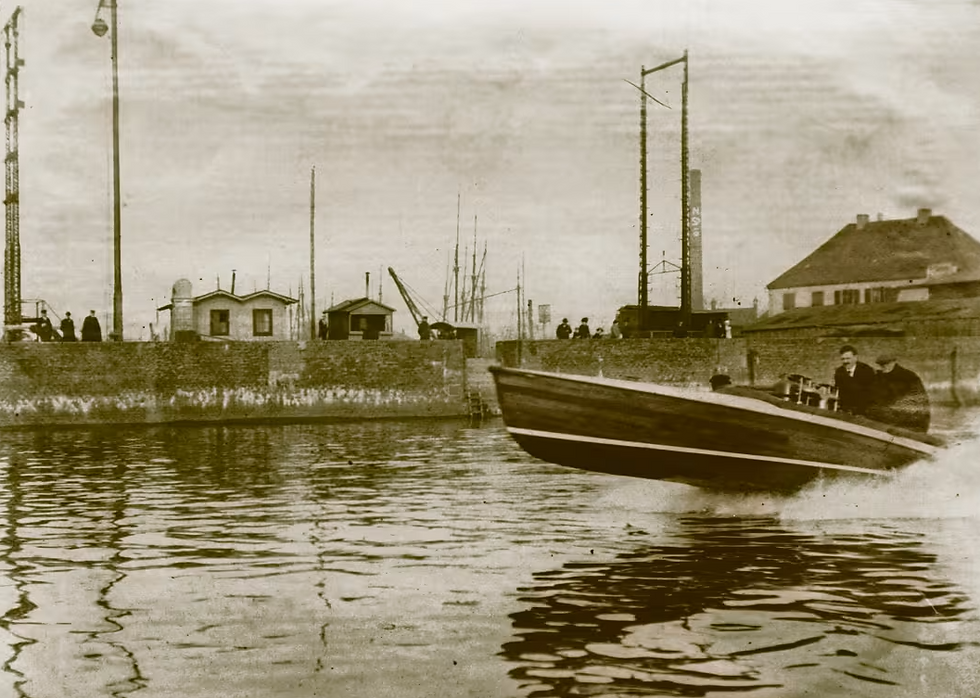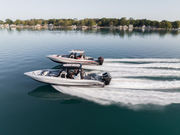Before Fibreglass- The 1000 Islands & Cliffe Craft Boats (Part 4)
- Richard Crowder

- Sep 23, 2020
- 3 min read
Updated: May 16, 2022
By: Richard Crowder
Celebrating Canada's Wooden Pleasure Boat Heritage- Part 4
Most of the wooden boat builders we have explored so far in this series developed and enjoyed national or even international exposure with their products. In this Part Four of the series we first examine a builder which became a regional stalwart servicing the varied needs of the fast-growing popular vacation hotspot of the 1000 Islands in the St. Lawrence River area of Ontario.
Cliffe Craft Boats
Cliffe Craft, not to be confused with Chris Craft, was started in Gananoque in the heart of the 1000 Islands in the St. Lawrence River cottage, tourism, and resort mecca in the late 1940’s by Charlie Cliffe. Charlie worked for the local Link Manufacturing Company, famous for its Link Trainer flight simulator that Edwin Link designed for pilot training during World War II.
Right after the war, when sales of flight simulators fell, Link began building a small line of cedar strip canoes and boats. When Link decided to get out of the boatbuilding portion of its business, Charlie bought the material, tools, and jigs and started building boats as a sideline at his farm while still working for Link.
Charlie soon started to design his own boats and switched from cedar strip to mahogany lapstrake for his hulls. With these new designs, the boats were now called Cliffe Craft. Dealerships were established from Toronto to Montreal and up the Rideau Canal waterway system. Charlie was regarded as an innovator, not only for the design of his boats, but also for being one of the first to use the new Eaton sterndrive propulsion system on some models.
Charli along with some employees, while still working out of his farm, continued to design and build more models as the market for his quality runabouts, small cuddy cabins, and cruiser boats grew throughout the 1950's. When Link closed its facility in Gananoque 1960, Charlie and his new partner bought Link’s waterfront warehouse. There, he was able to expand production and hire additional employees to build more boats to satisfy the growing demand for his designs.
Cliffe Craft specialized in the niche 16 to 27-foot market range, with several models all having high freeboards making them ideal for the rough waters of the St. Lawrence River and the Great Lakes. They also built several boats for the Marine Division of the Ontario Provincial Police (OPP), including a one-off 35-foot cruiser utilizing a double-planked bottom instead of lapstrake for patrol use on Georgian Bay.
By the early 1970’s, demand for wooden boats, especially the smaller ones, was slowing due to the increasing popularity of fibreglass. Over the next decade, Cliffe Craft gradually changed to building only custom made-to-order boats, but its twin engine 25-foot runabout was still popular for its rough water capabilities and carrying capacity. By the 1980’s, Cliffe Craft became a dealer for other boat lines and an OMC servicing facility while still building custom-ordered models in wood as well as doing restoration work.
Charlie Cliffe eventually retired back to his farm and began hand building the renowned St. Lawrence skiff cedar strip design for a few discerning customers. Charlie passed away in 2017, having left a legacy of producing an estimated 2500 high quality Cliffe Craft boats.
To catch up on our Before Fibreglass series and the history of wooden boatbuilding check out Part 1, Part 2, and Part 3.
For further information and pictures of Cliffe Craft boats, check out these websites:
1) The 1000 Islands Boat Museum- Cliffe Craft Exhibit
2) 1000 Islands Life- "No son, it's a Cliffe Craft"































My father Howard "Sam" Steacy" was born in the 1930, the same year as Charlie Cliffe. As it happens he was born on the Steacy farm about a half mile east of the Cliffe farm in Wilstead. Charlie and Sam were fast friends until my father died in 2011. I was born in 66' and have fantastic memories of Charlie, especially his mini steam engine (about the size of a shoebox) he would run in our kitchen to the consternation of my mother. The chuffing sound and steam puffs were mesmerizing for me and my two brothers. My mother had actually been Charlie's book keeper for some years in the early to mid 70's when Charlie had partnered with Tom…